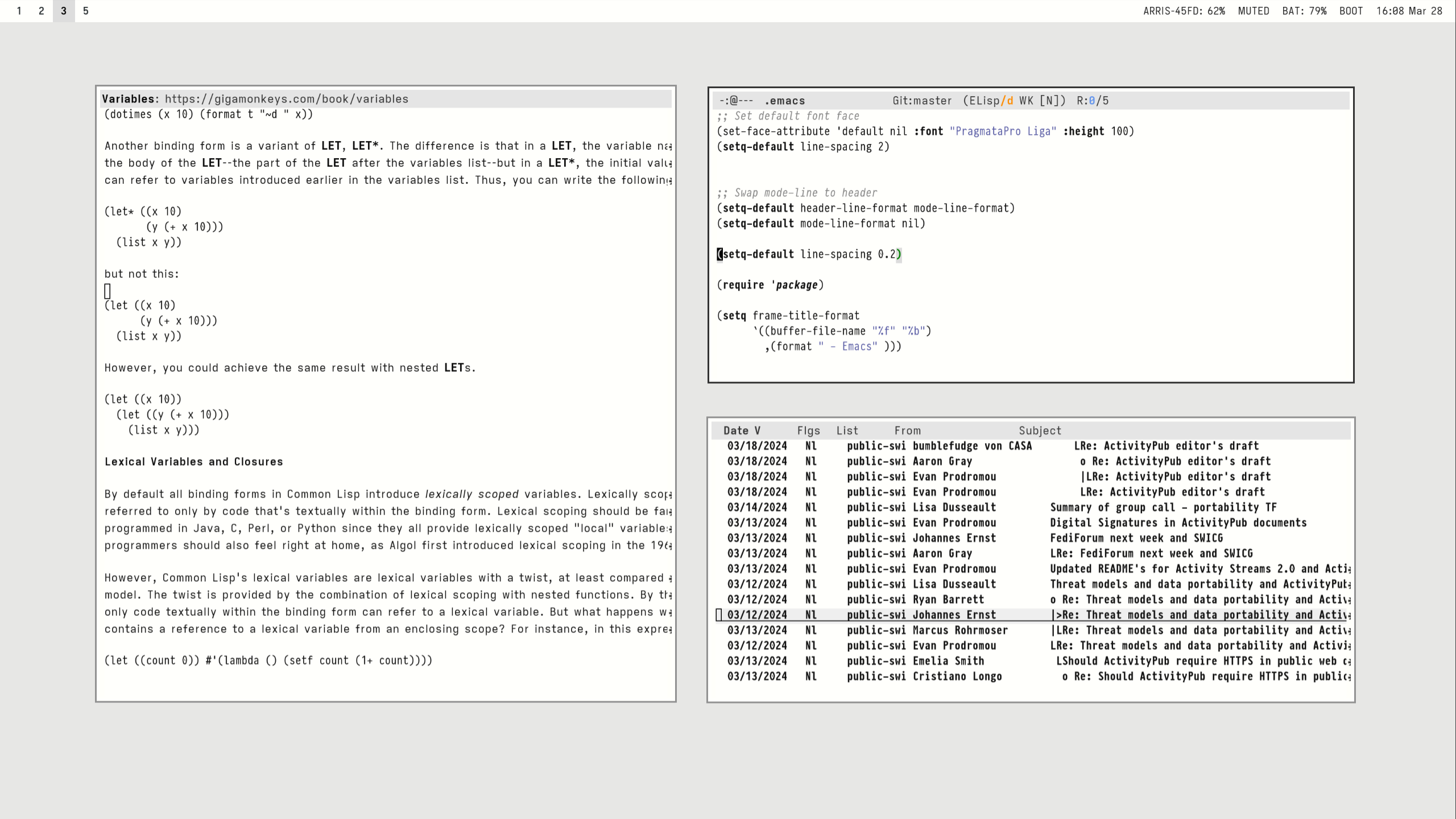this post was submitted on 02 Apr 2024
83 points (95.6% liked)
Unixporn
15380 readers
1 users here now
Unixporn
Submit screenshots of all your *NIX desktops, themes, and nifty configurations, or submit anything else that will make themers happy. Maybe a server running on an Amiga, or a Thinkpad signed by Bjarne Stroustrup? Show the world how pretty your computer can be!
Rules
- Post On-Topic
- No Defaults
- Busy Screenshots
- Use High-Quality Images
- Include a Details Comment
- No NSFW
- No Racism or use of racist terms
founded 5 years ago
MODERATORS
you are viewing a single comment's thread
view the rest of the comments
view the rest of the comments

If you want each of them to be their own window you can do a:
to do that. (Note: not completely sure of the syntax but that's the basic idea of it)
Edit: Added -c flag to create new frame (window)
That might work if I re-bound the
split-windowfunction to launch a new Emacs client, because this is the function that most other Emacs functions use to split the frame into windows.But I think a better approach would be to just add a single rule function into the
display-buffer-alistthat always asks for a new frame no matter what the input is.Mickey Peterson wrote an article on how Emacs manages its own windows, and the Elisp Manual on Windows is pretty good too.
Correction: it's
The -c flag seems important, as it creates a new frame (a new window)